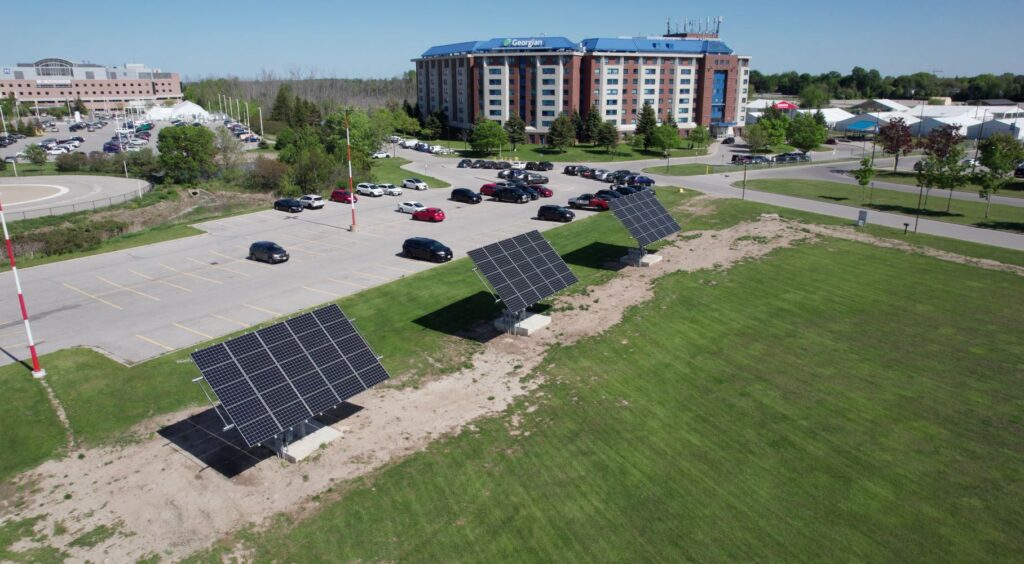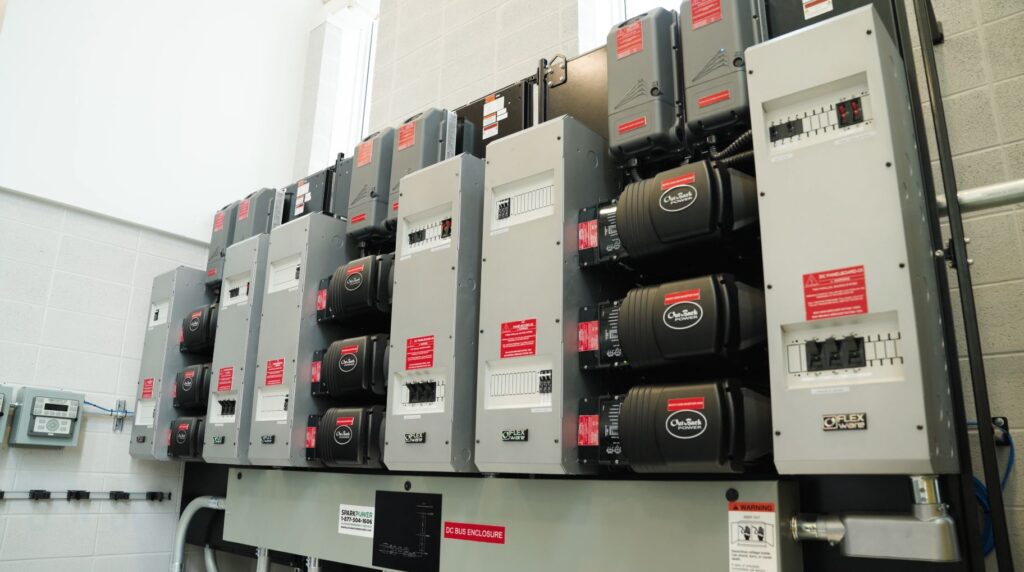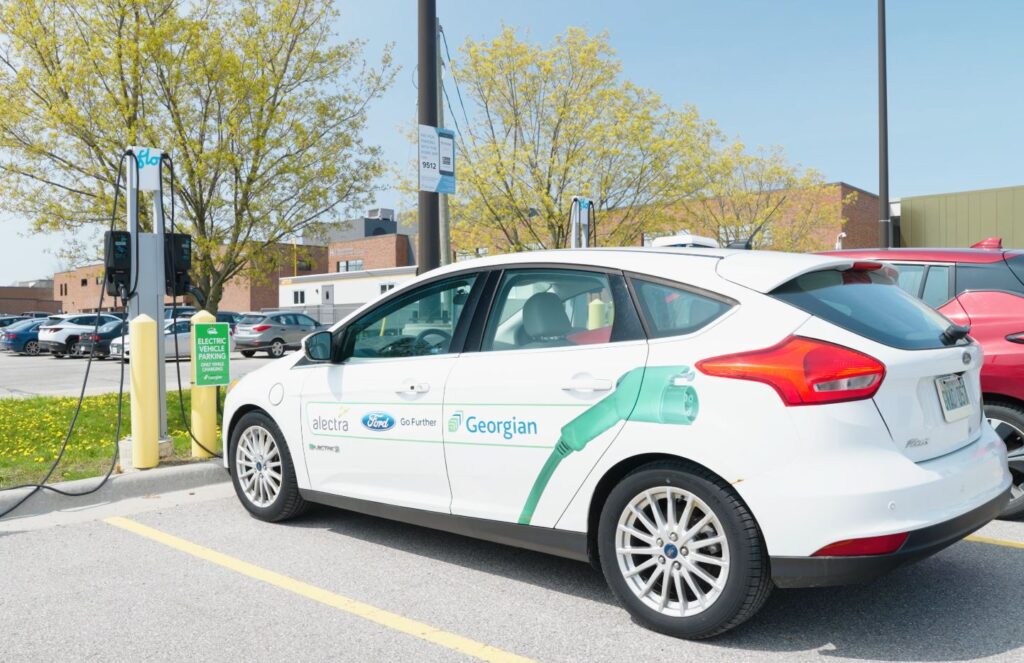Georgian’s microgrid system powering the future with renewable energy
July 12, 2023
Changemaking, research and social innovation are part of the heartbeat of Georgian College. Since signing the United Nations Sustainable Development Goals (SDG) Accord, students and faculty have been collaborating to meet the 17 SDGs; one being to reduce the college’s carbon footprint.
If you drive by the Barrie Campus, you might notice three large solar panels. We’re able to power several electric vehicle charging stations, as well as our Alectra Centre for Research, Innovation and Commercialization with renewable solar energy, stored in our microgrid.

Did you know: Our solar panels can produce up to 21 kilowatts of power—that’s enough to run an average household!
What’s a microgrid?
A microgrid is a small-scale power grid that can operate independently or together with other larger power grids. The main task of Georgian’s microgrid is to provide backup power or support the main power grid during peak usage.

Our microgrid can help reduce our carbon footprint in a variety of ways:
- Solar energy is carbon-free. We can also change the solar panel tracking and angles to get the most energy out of the sun
- Monitoring batteries and charge cycles allow us to evaluate how and when we’re using the energy and optimize for future usage
- Driving electric vehicles can reduce carbon emissions from fuel. Georgian provides electric vehicle charging stations, powered by solar energy from the microgrid!

Students in Engineering and Environmental Technologies and Computer Studies programs regularly work in our research centres and with the microgrid. They have a unique opportunity to track the data, analyze usage and apply what they learn in class to a highly advanced electrical system.
Experimenting with our microgrid system gives students a chance to tackle issues like reducing greenhouse gases through an innovative approach. This technology is more than just for faculty; we want students to explore and be part of real-world scenarios.
Ron Sky, Professor, Engineering and Environmental Technologies